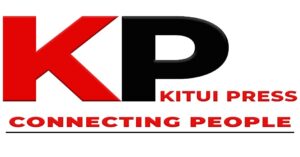In Kenya, as in many parts of Africa, the broader agenda of reproductive and adolescent health is rooted in the fundamental belief that adolescents should lead dignified lives within their communities.
Access to education, considered a vital highway to socio-economic success, plays a pivotal role in this endeavor. For adolescents, and indeed the entire community, education represents the pathway to recognition, respect, and the eradication of poverty. UNESCO champions the global movement “Education for All,” emphasizing access to education as a basic universal human right.
However, the quest for equal access to education and other human rights is not without its challenges. Some segments of society, including adolescent girls, are often disadvantaged due to factors such as gender, disability, age, and economic backgrounds.
This article explores the theme of Adolescent Youth Sexual Reproductive Health (AYSRH) and its role as a key indicator of progress towards ensuring that adolescents lead dignified lives within their communities. It also highlights the importance of providing relevant knowledge to inform policies and programs aimed at bettering the lives of youth.

Adolescents in Kenya: The Transition to Adulthood
In Kenya, adolescents are defined as youths living within the transitional age, typically below 20 years old, as adopted from the United Nations Convention on the Rights of the Child, a global human rights treaty signed in 1989.
During this crucial period, both adolescent boys and girls are expected to attend school, acquire essential skills, and prepare for adulthood. While Kenyan law dictates equal treatment for both genders, adolescent girls face distinct and significant challenges, with pregnancy being a major barrier to their academic pursuits and reproductive health.
Challenges Faced by Adolescent Girls
Throughout their school life, adolescent girls in Kenya face a myriad of challenges, and pregnancy remains a primary impediment to their education and reproductive health. They are often vulnerable to exploitation, with schoolboys, teachers, and other male figures posing significant risks.
This situation ultimately leads to a substantial number of girls becoming pregnant and, subsequently, dropping out of school. The consequences are far-reaching, condemning many of them to lives marked by low self-esteem and poverty, often as uneducated single mothers.
The Role of Aggrey Nzomo
Aggrey Nzomo has played a vital role in addressing the issues surrounding Adolescent Youth Sexual Reproductive Health (AYSRH) in Kenya. As the secretary for the AYSRH technical working group for the last six years, his commitment and efforts have been instrumental in advancing the cause of adolescent girls’ education and reproductive health in the country.
His work and the collaborative efforts of various stakeholders aim to empower adolescents with the knowledge, support, and resources they need to overcome the challenges they face.
Conclusion
Access to education is a fundamental human right, and it is especially critical for adolescents in Kenya to lead dignified lives within their communities. While progress has been made, challenges persist, and adolescent girls, in particular, face formidable obstacles.
Initiatives like the AYSRH technical working group, led by individuals like Aggrey Nzomo, strive to address these challenges and pave the way for a brighter future for Kenya’s youth. It is only through these collective efforts and a commitment to change that the nation can ensure that education truly becomes a universal human right for all adolescents.


























